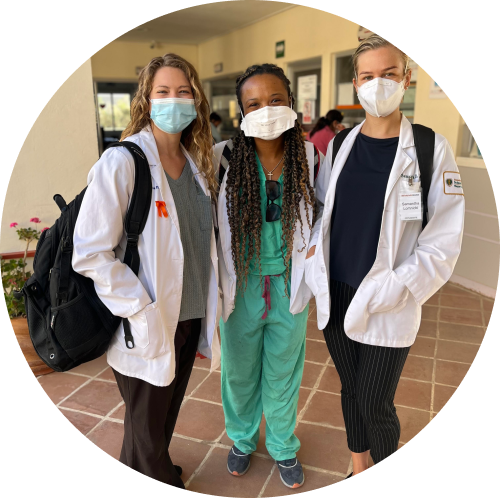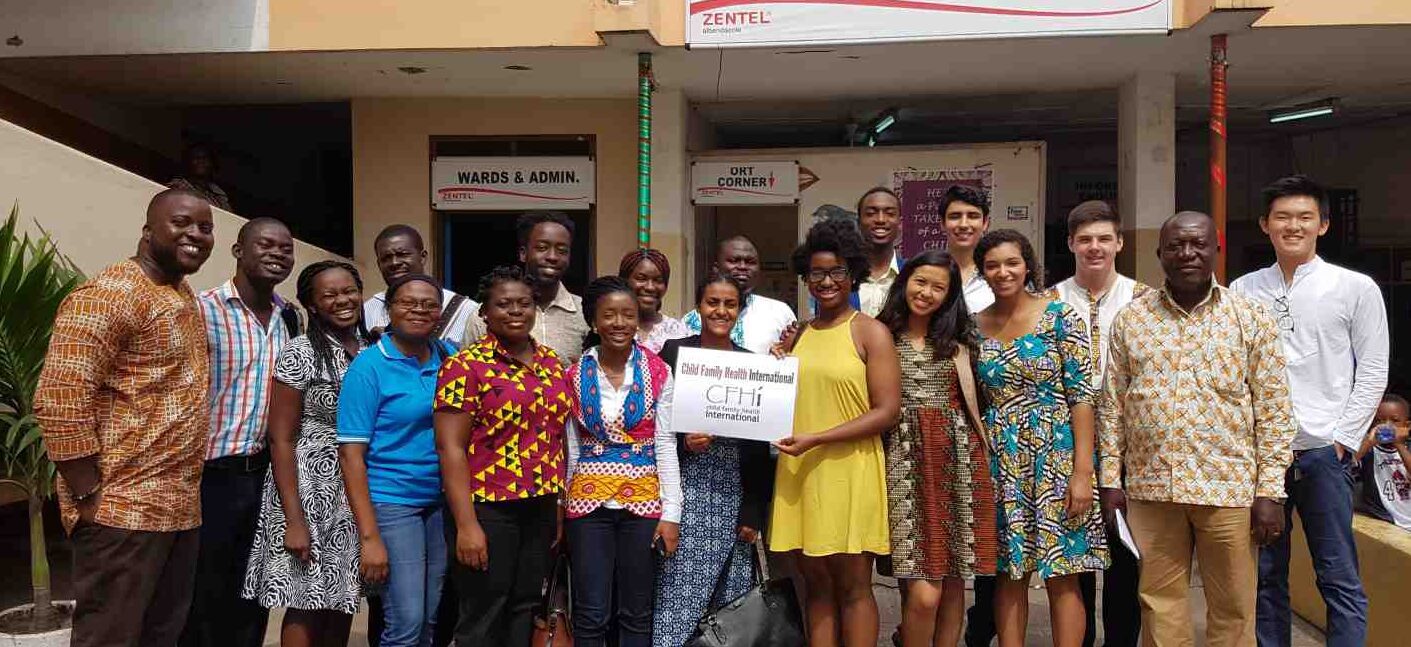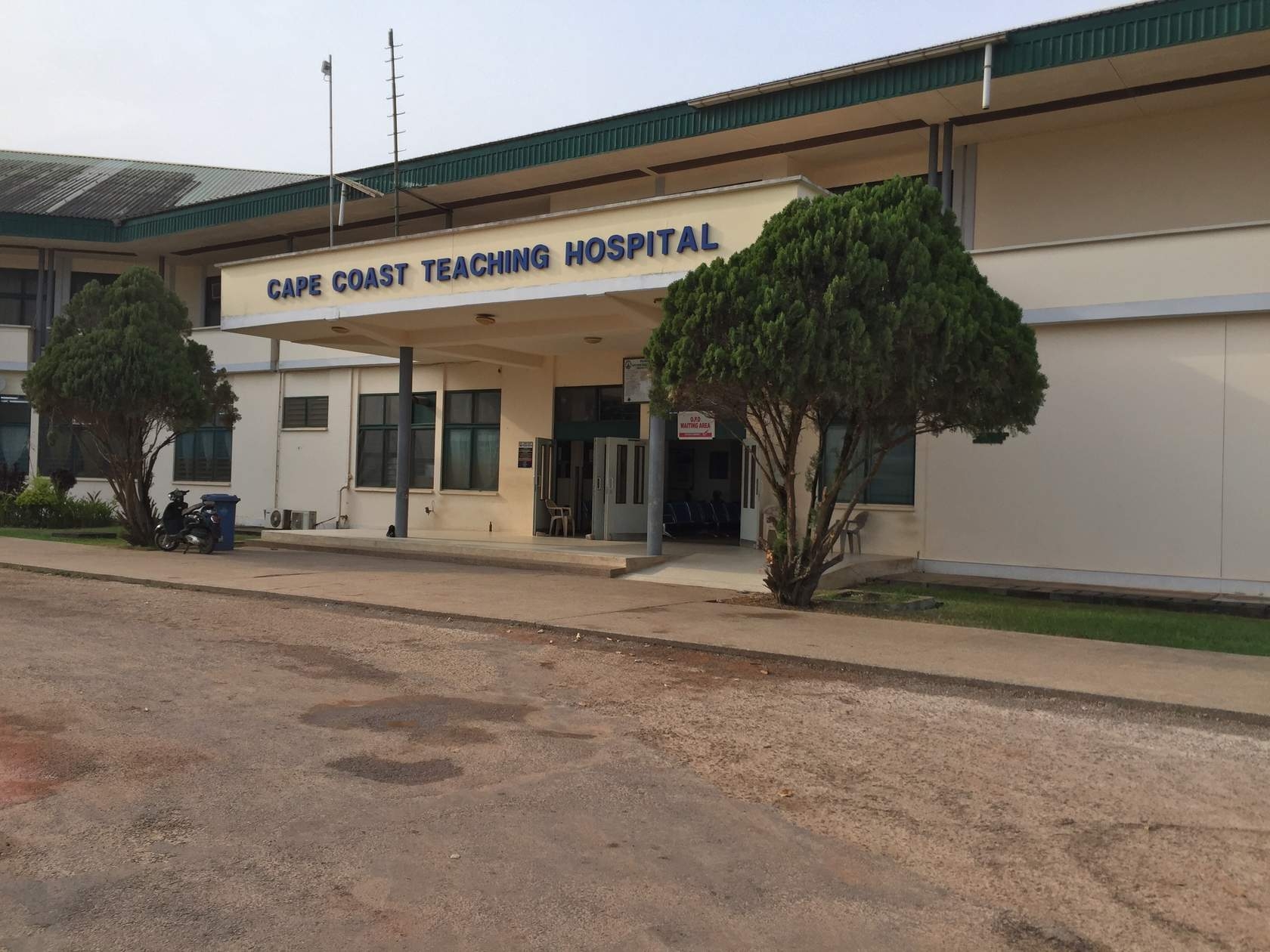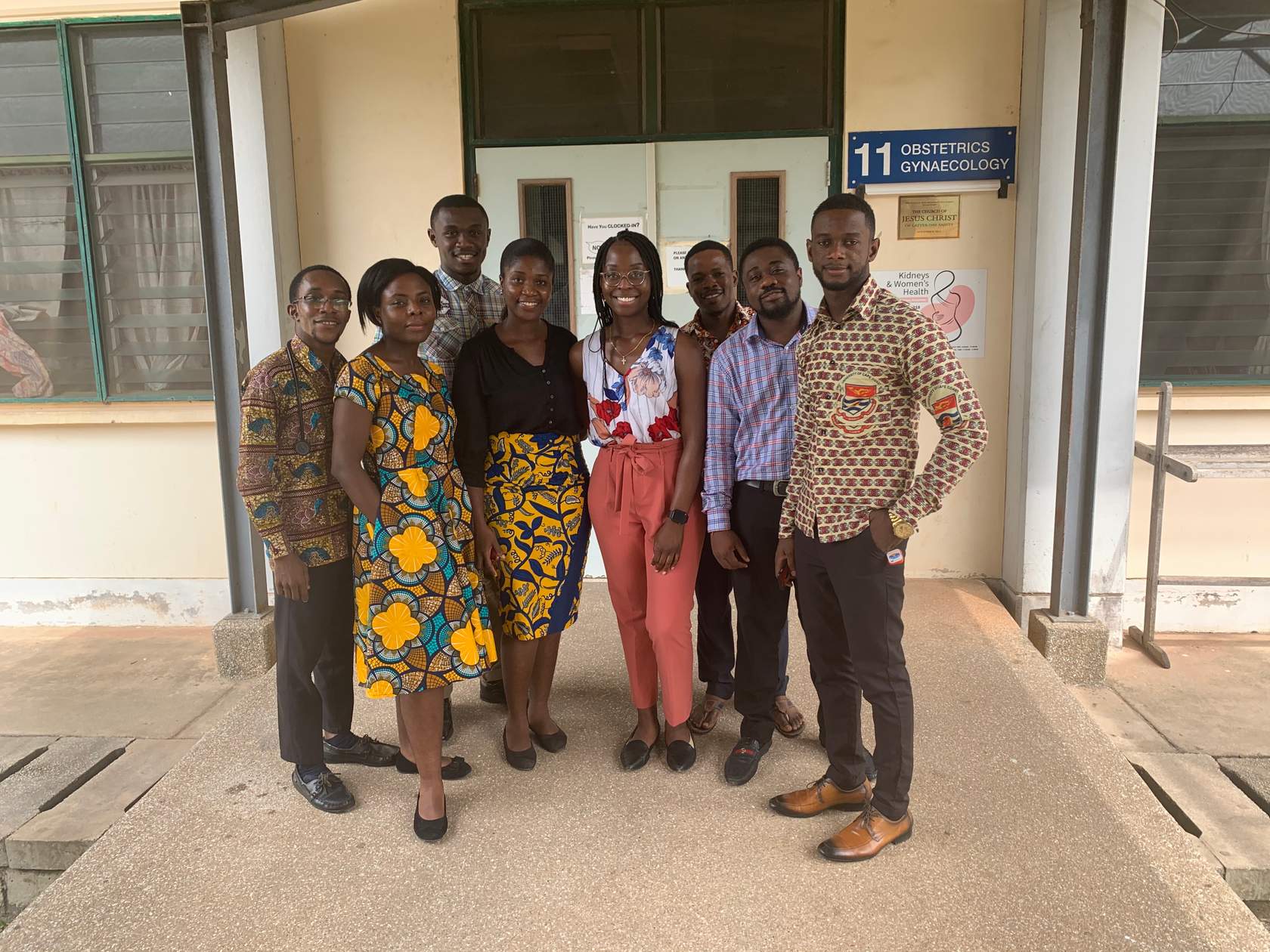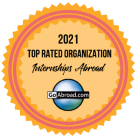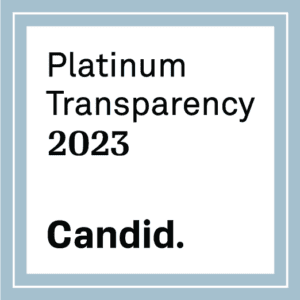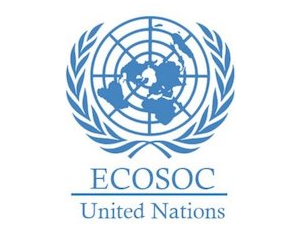- Home
- All programs
- Global Health in Ghana (Cape Coast)
Global Health in Ghana (Cape Coast)
Program overview
Ghana’s Cape Coast is a relaxed fishing port, home to Elmina and Cape Coast Castles, which are legacies of the trans-Atlantic slave trade and recognized UNESCO World Heritage sites. Ghana was the first country in sub-Saharan Africa to gain independence from European colonization in the twentieth century. Today, many factors contribute to Ghana’s socio-economic realities, including foreign debts, an overburdened National Health Insurance System, and the volatility of health and development projects. These factors impact the ability of much of Ghana’s population to access and enjoy optimum health care, education, food security, fundamental human rights, and remunerated work.
Program participants shadow healthcare workers at a large teaching hospital that provides primary and tertiary care while delving into Ghana’s disease burden in the healthcare system, focusing on program themes, including hospital medicine, public health, infectious disease, and more in various departments. Alternatively, program participants may have the opportunity to gain clinical on-site and outreach learning experiences (when available) from a leading sexual and reproductive health and rights (SRHR) organization in partnership with various community stakeholders in public health and development. This option may include placement with one of the lowest units in the level of healthcare in Ghana, involving community healthcare workers that provide care on-site to rural areas and go to these communities. Two tracks are available in this program for students to choose from: Clinical Track (CT) and Public Health and Social Development Track (PHSDT).
Participants will stay in dedicated CFHI housing with a Local Coordinator and other CFHI scholars. During free time, participants enjoy Cape Coast’s scenic landscapes, beautiful sandy beaches, and historic landmarks and immerse themselves in Ghanaian culture.
About this program
- Location
- Accommodations
- Arrival Information
- What's Included
- Things to Do
- A Day in the Life
- Alumni Advisor
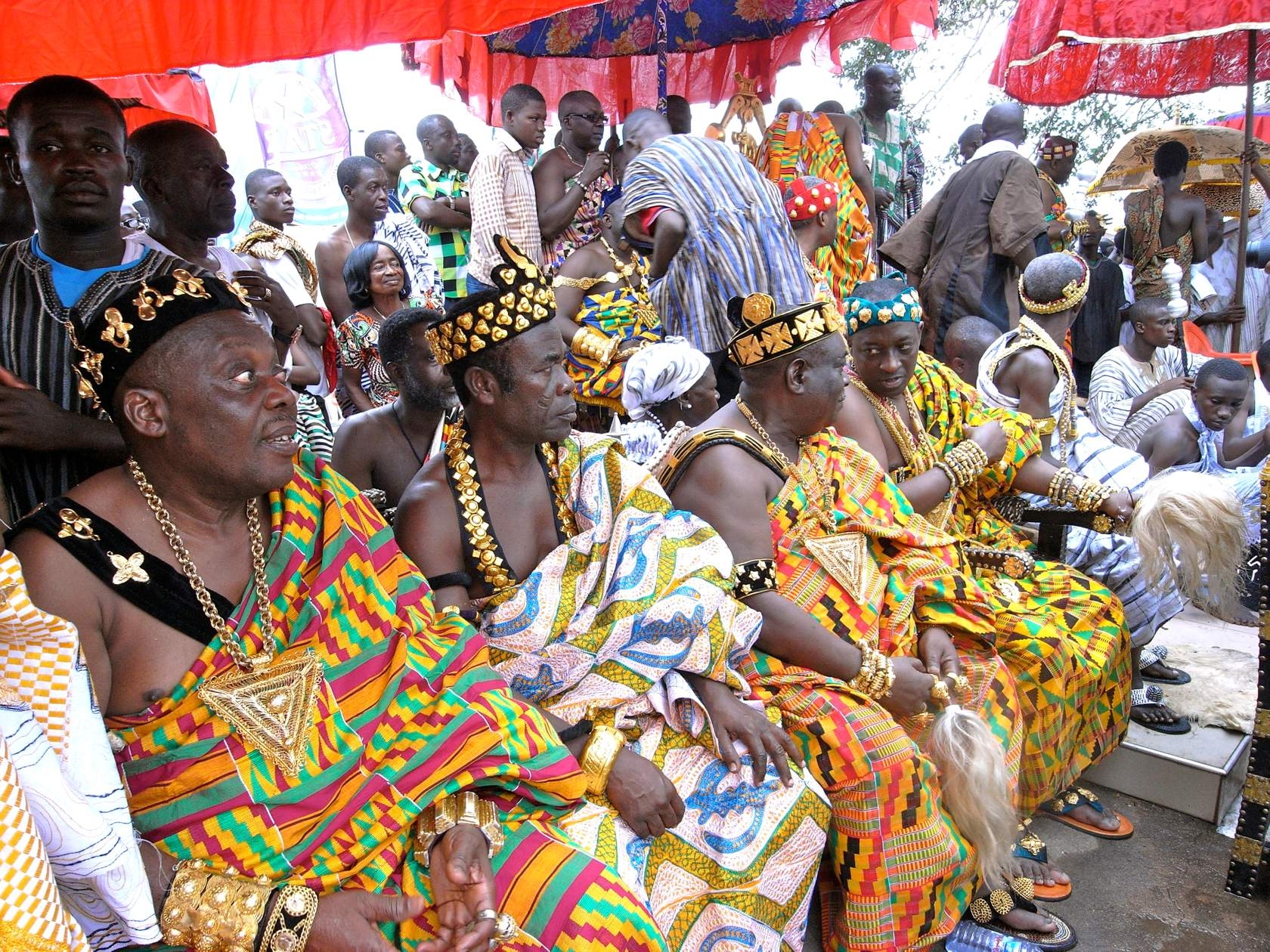
With secluded beaches adorned by vibrant fishing boats, a treasure trove of historic sites, and the warm hospitality of its residents, Cape Coast stands out as one of Ghana’s most captivating destinations. Nestled along the Atlantic coastline, this region offers a unique blend of natural beauty and cultural significance.
Known as a tranquil fishing port, the city of Cape Coast serves as the capital of both the Cape Coast Metropolitan District and Central Region of south Ghana. Located approximately a 3-hour drive away from Accra, Ghana’s bustling capital, Cape Coast offers a delightful escape to those seeking a more serene and culturally enriching experience.
In addition to its historical landmarks, Cape Coast is blessed with serene and picturesque hills, valleys, and streams that enhance its natural allure. The region enjoys a tropical climate year-round, with cooler months typically spanning from June to August. This climate allows visitors to revel in the region’s beauty and cultural heritage throughout the year, whether exploring its historic sites or enjoying the tranquil beaches.

Program participants will find their home away from home in a comfortable guest house, screened by CFHI Local Coordinators in Cape Coast and following CFHI’s health and safety guidelines. In some cases, CFHI scholars share the house and/or a room with fellow program participants.
Going beyond mere lodging, staying in a local house provides a unique opportunity to learn about the local culture. Accommodations include two meals per day. At the welcome orientation, participants will be instructed on culture and work etiquette to have the best experience in both the home and the health settings.
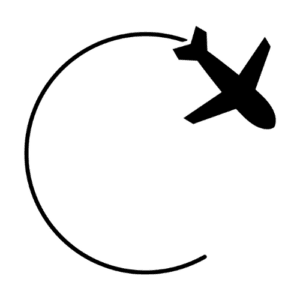
All participants should arrive in Accra airport on the program start date. Participants will be picked up by one of the CFHI Local Coordinators and will stay at the “CFHI Accra House” on the day of arrival, located in Mamprobi, Accra. Transportation will be offered to Cape Coast after an on-site orientation in Accra.
All US citizens should apply for a Ghana tourist visa in advance. More information will be provided by CFHI after acceptance into the program.

What’s Included
CFHI Program fees include the majority of your on the ground costs. As a nonprofit, CFHI strives to keep fees low and offers fundraising opportunities, scholarships and discounts.
Pre-Departure Support
- Program advising and support via email, phone, and web meeting from CFHI’s Central Leadership team
- Detailed online Pre-Departure Training that includes modules on program logistics (flights, visas, immunizations, and more), intercultural learning, introduction to health realities at your program site, and much more
On-Site Services
- Airport pick-up upon arrival and transportation with a local CFHI representative to your program lodging
- Welcome orientation 1-2 days after arrival covering safety, transportation, and other logistics
- CFHI Local Team that provides instruction, logistical support, and 24/7 emergency response
- Meetings and lectures on local healthcare system, socio-economic determinants of health and current cultural/historical topics.
- Placement and coordination of clinical and any public health activities (if relevant)
- Accommodation and two meals per day
- Local cell phone or support obtaining a local SIM card
- International emergency medical and evacuation insurance (unless waived by your university or institution)
Post-Return Resources
- Opportunities to engage as a CFHI Alumni Ambassador, reviewing scholarship applications, speaking on CFHI panels, and more
- Access to CFHI alumni-only social media group/s featuring news and career opportunities related to Global Health
- CFHI alumni newsletter highlighting events, professional development opportunities, resources, and ways to stay involved
Uniquely, 60% or more of CFHI student program fees go directly to the communities they will be visiting, benefiting the local economy at large.
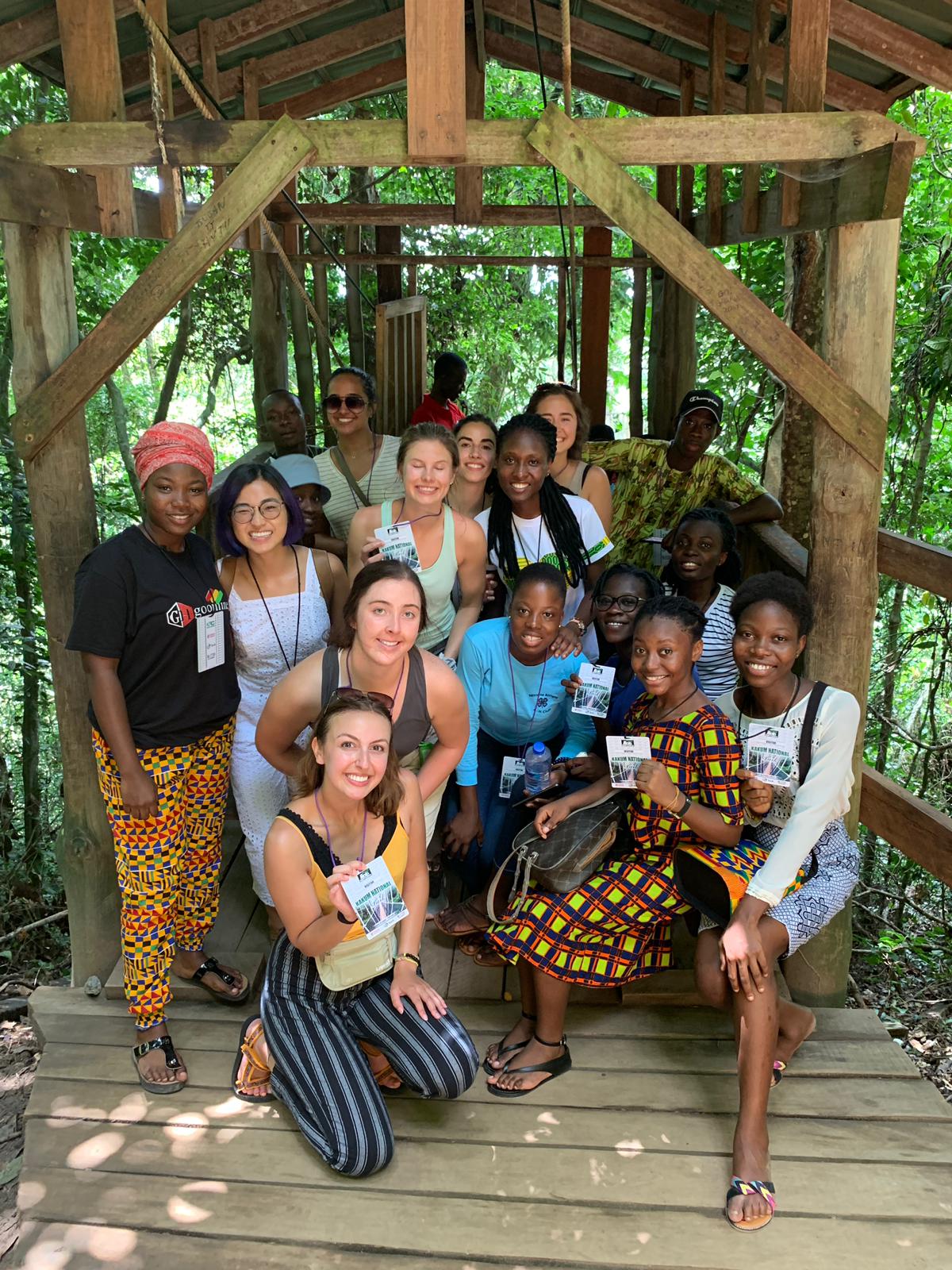
Considered former U.S. First Lady, Michelle Obama’s ancestral home, Cape Coast is one of the major tourist destinations in West Africa. The historical importance behind this city is reflected through its many slave trade castles and forts along the coast with guided tours informing the stories, experiences and history of the slaves. Significant sites include the World Heritage Site- Cape Coast Castle and Elmina Castle; both serving as thought-provoking memorials.
Kakum National Park is considered one of the main attractions for tourists who visit the city. Experience the forest’s wildlife consisting of at least 40 species of mammals including elephants and primates, 200 species of birds and over 400 species of butterflies. The park contains an exciting and adventurous Canopy Walk tourists can walk on, which is suspended 30-40 meters high amongst the trees with 7 different connected bridges, all throughout the forest. Additionally, enjoy the tropical beaches and resorts along the coast, with other attractions including the Cape Coast Centre for National Culture, Monkey Forest Resort and many more. Visitors can also learn about medicinal trees and shrubs found in the forest.
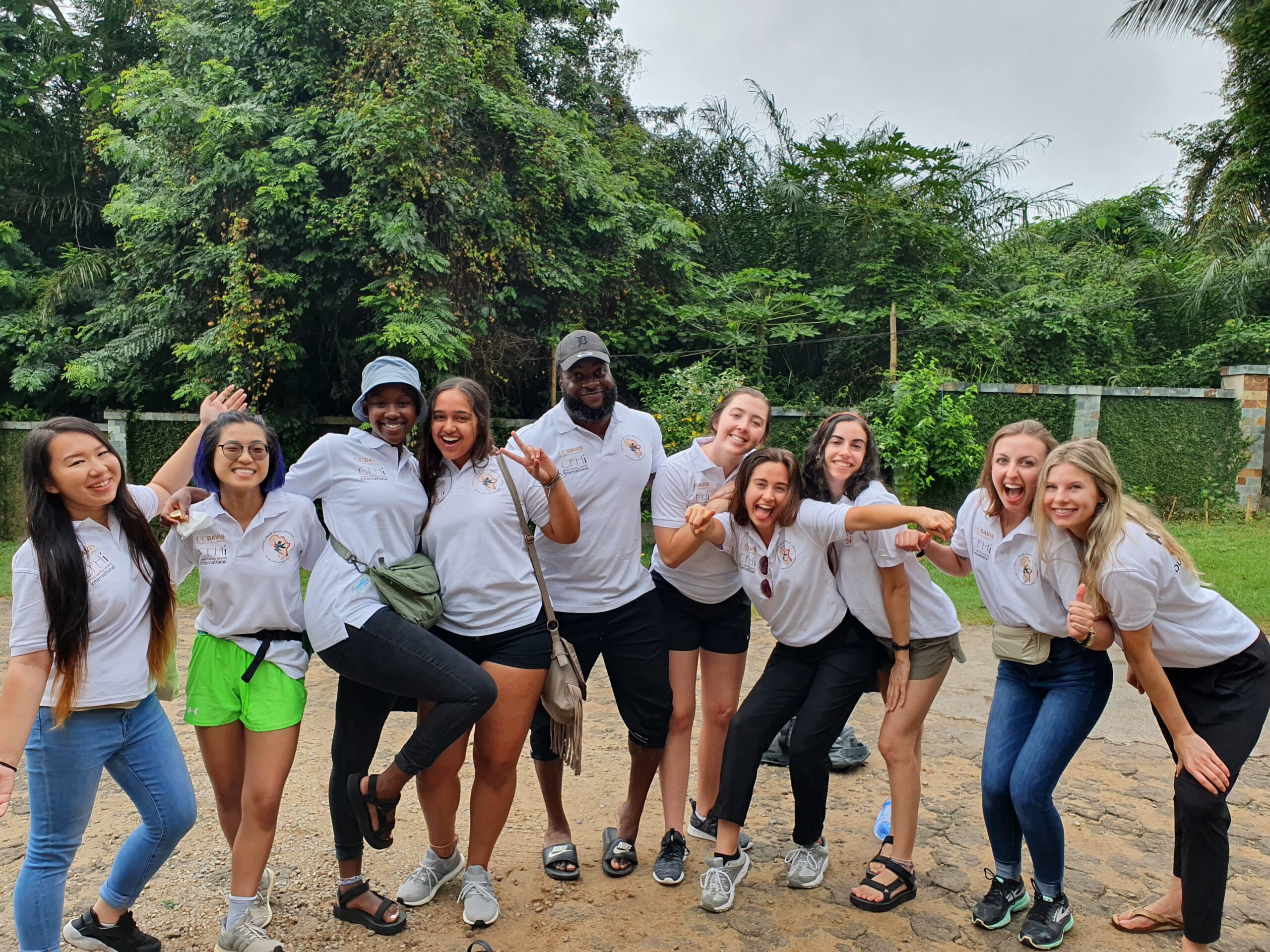
A typical day in a CFHI program is a blend of immersive learning, cultural exploration, and personal reflection. Program activities usually take place in the mornings for 4 to 6 hrs, generally Monday through Friday. Participants will typically be at the hospital from 8 am – 2 pm, though this can vary significantly depending on special clinics, participants indicating interest in specific rotations, etc. The clinical site assignments and schedule are shared by the local team upon arrival. Weekends are free of program-planned activities.
Amy Dokiburra
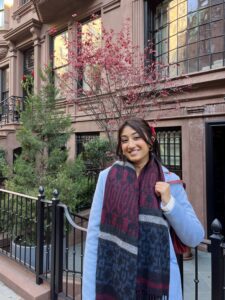 Hello! My name is Amy Dokiburra and I am a third year Cellular & Molecular Neuroscience major at The Ohio State University, working towards pursuing an MD/PhD program post-grad. I conduct neuroimmunology research in the Segal Lab at the OSUMC Department of Neurology, volunteer at Helping Hands free clinic, and teach Organic Chemistry (1 and 2) Lab at OSU!
Hello! My name is Amy Dokiburra and I am a third year Cellular & Molecular Neuroscience major at The Ohio State University, working towards pursuing an MD/PhD program post-grad. I conduct neuroimmunology research in the Segal Lab at the OSUMC Department of Neurology, volunteer at Helping Hands free clinic, and teach Organic Chemistry (1 and 2) Lab at OSU!
In the summer of 2023, I lived in Cape Coast, Ghana for a month, where I shadowed physicians & surgeons at Cape Coast Teaching Hospital and volunteered with the Planned Parenthood Association of Ghana. It was a life-changing experience, and I am so dearly grateful for everything I learned and everyone I bonded with at CCTH and PPAG.
In my free time, I kickbox, weightlift, and cook. Usually though, you can find me in the library explaining class concepts to my friends, or in a classroom explaining chemistry to my students. My family and I immigrated to the US, so what matters most to me is building community and spending time with loved ones. Welcome to the CFHI family!
Clinical Rotations & Public Health Placements
Meet the Team

Dr. Charles Chineme Nwobu - CFHI Ghana Medical and Program Director
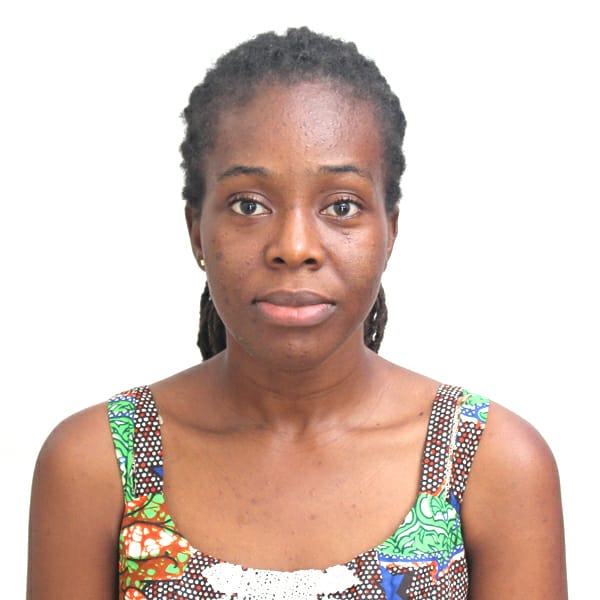
Archleana Odofley Nortey - Deputy Medical Director
Archleana Odofley Nortey is a midwife at Cape Coast Teaching Hospital (CCTH) and is currently the CEO of AJ’s maternity home. She holds a Bachelor’s degree in midwifery from Garden City University College. Her work involves providing Antenatal, perinatal and postnatal care to women. She is part of the cervical cancer advocate team at CCTH. Also, she is an examiner for the Nursing and Midwifery Council licensing exams. At CCTH, she is part of the team that assists people who are hard of hearing when they visit the hospital. She is married with two children, and her interests include educating students.
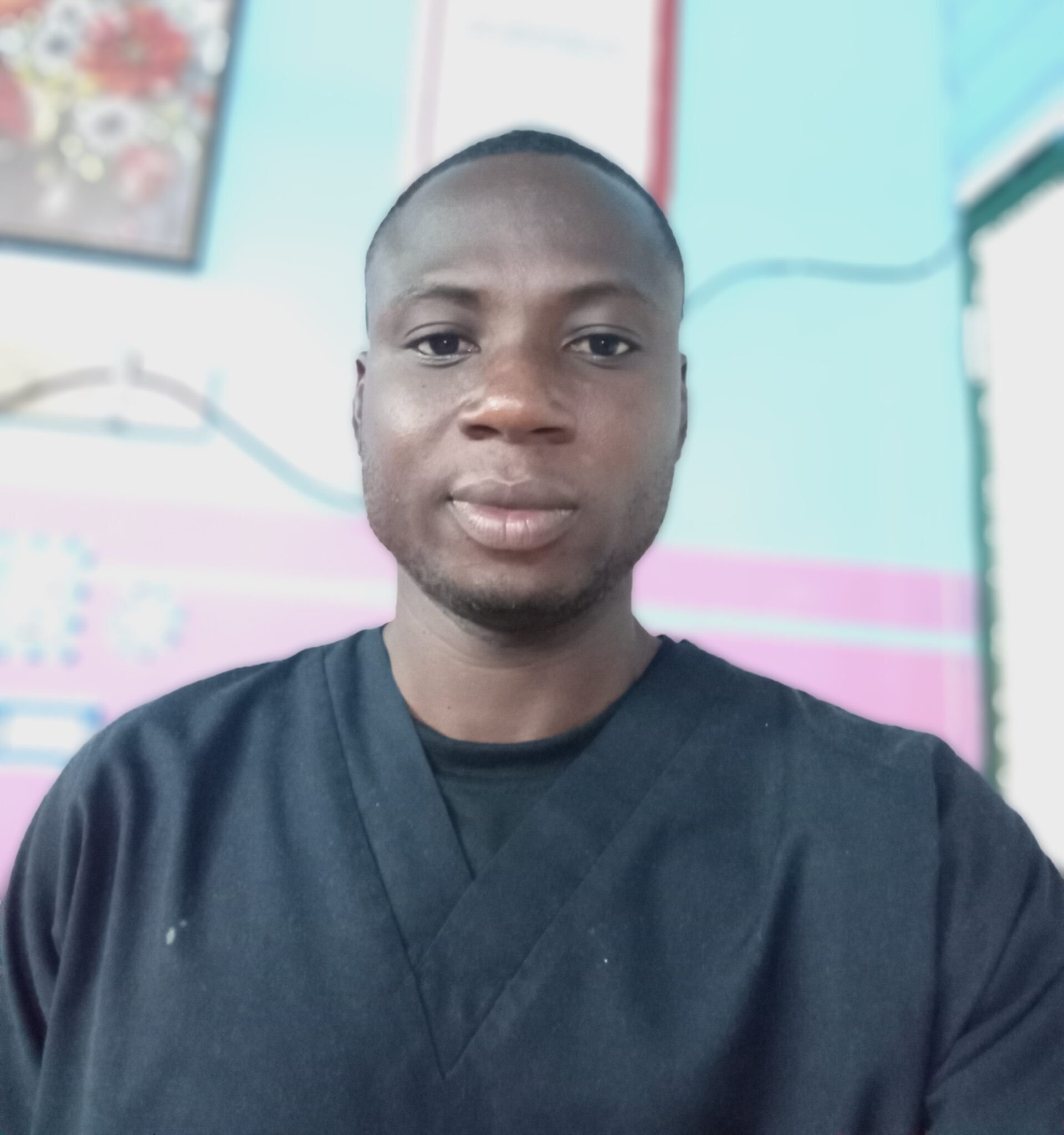
Philip Arthur - Deputy Medical Director
Philip Arthur is a registered nurse at the Delivery Suit Theatre Recovery Unit of the Maternal Health Sub – Budgment Management Centre (BMC) of Cape Coast Teaching Hospital. He has experience working with Ankaful Leprosy/General Hospital, has been involved in community outreaches, and has educated international medical volunteers who come for placements at the hospital. He holds a Diploma in Registered General Nursing from the Nursing and Midwifery Training College, Cape Coast. He is training part-time for a bachelor’s degree in Nursing at the University of Cape Coast. His hobbies include reading books and touring.
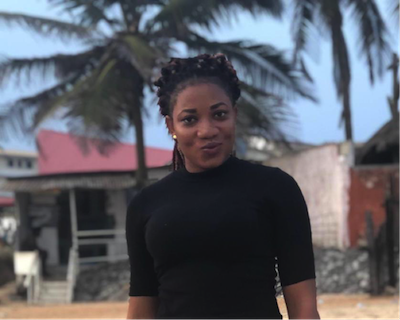
Georgina Asomah - CFHI Local Coordinator
The CFHI Local Coordinators manage the logistics of housing, transportation, and cultural immersion throughout the program. They are a valuable resource for any questions related to navigating the program locale, cultural norms, and tips on planning weekend travel.
Georgina Asomah is a native of Nadoli in the Upper West Region of Ghana but was born and raised on the Cape Coast in the Central Region of Ghana. She holds a Computer Administration/Secretariat diploma from an IT institution in Ghana. She has undergone training as a Peer Educator from the Planned Parenthood Association of Ghana. She currently serves as the Local Coordinator for Cape Coast. Her hobbies include reading, singing, listening to music, and travelling.
This CFHI program is ideal for participants who are 19 years of age or older, who have an interest in fields related to maternal & reproductive health, pediatrics & chid health, hospital & inpatient medicine, and/or public health. You do not need to be a student to be eligible for this program; mid-career professionals, GAP year learners, and others are also welcome. This program will provide an in-depth overview of maternal & reproductive health, pediatrics & chid health, hospital & inpatient medicine, and/or public health in Ghana through rotations within a teaching hospital and various organizations in Cape Coast. To confirm your eligibility, please read CFHI’s general eligibility requirements.
The Sustainable Development Goals are a global roadmap set forth by the United Nations General Assembly to end poverty, protect the planet, and ensure the well-being of all individuals by the year 2030. This program highlights the following SDGs:
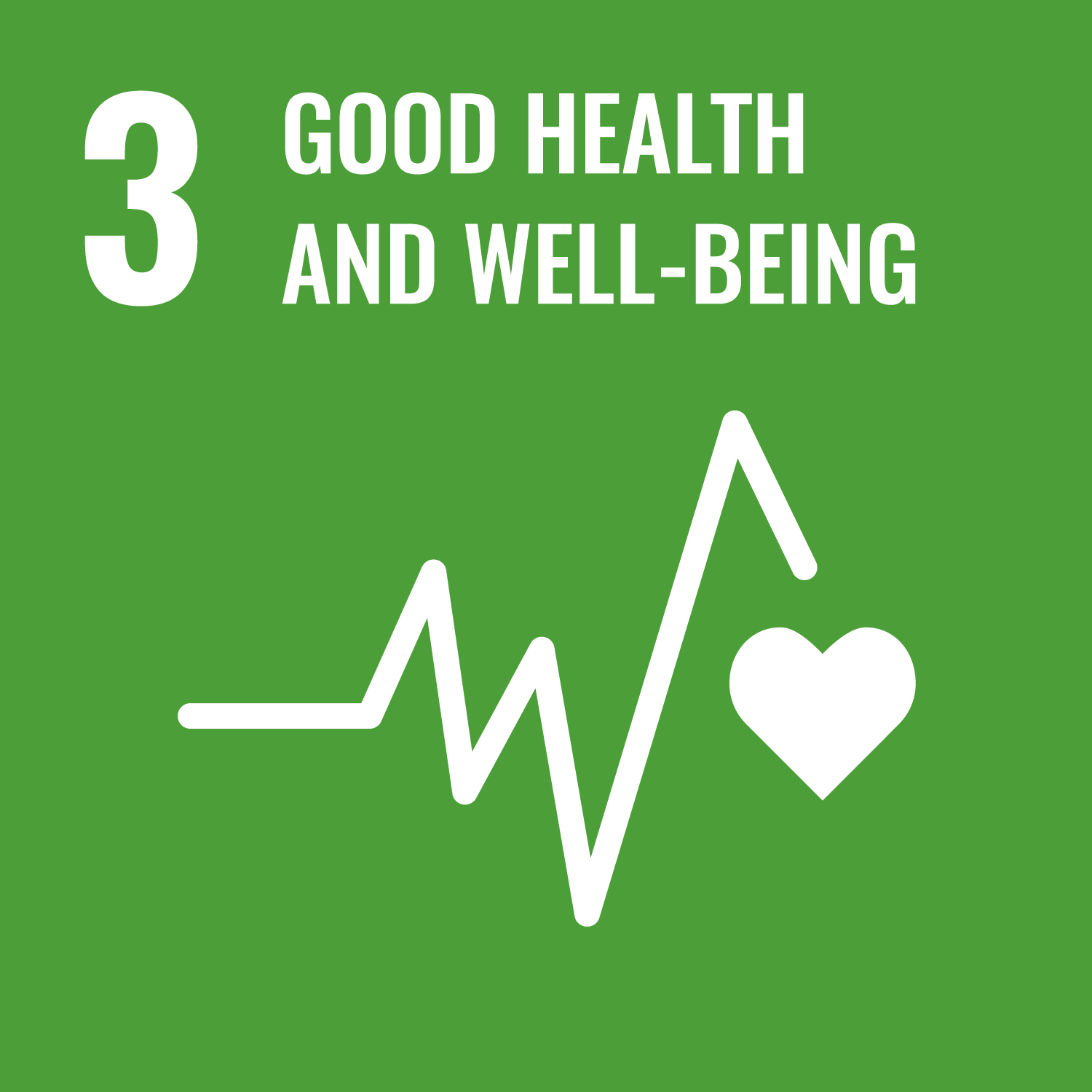
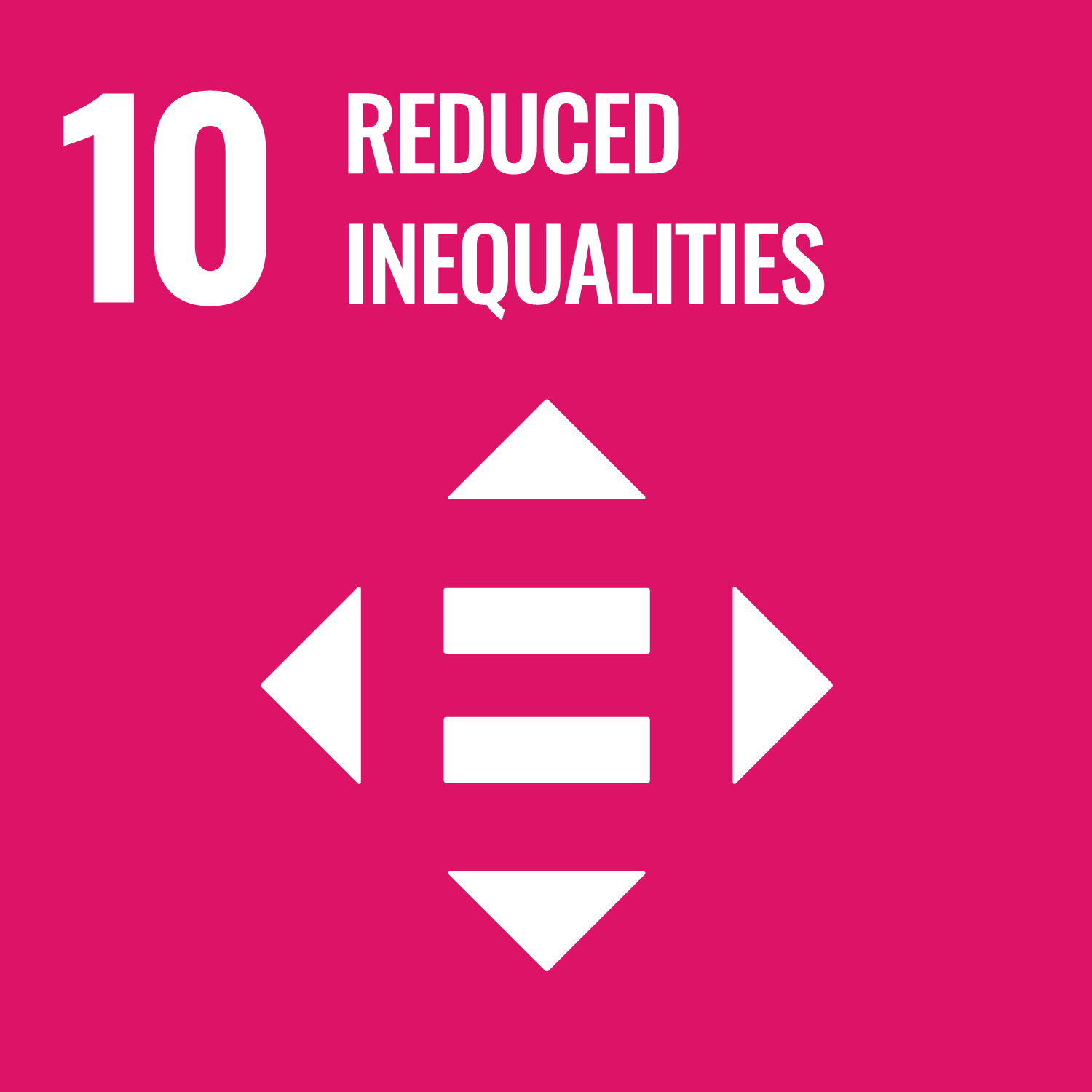
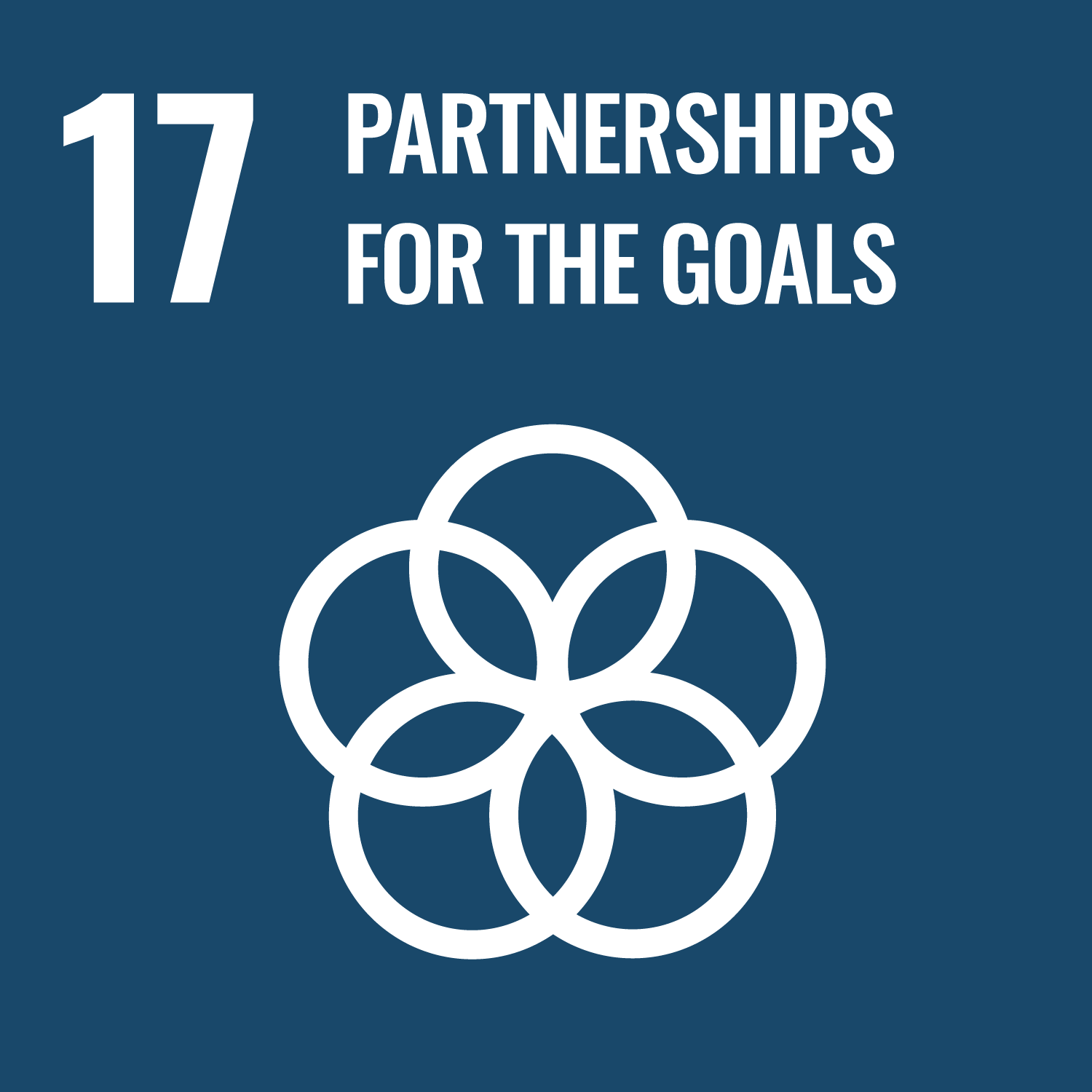
How to Apply
Create profile
Submit application
Hear back from CFHI team
Complete pre-departure training and requirements
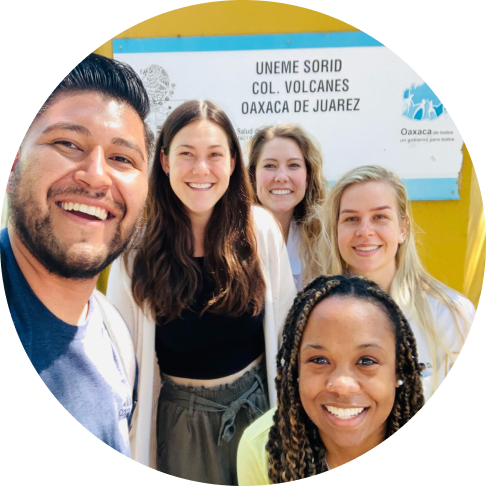
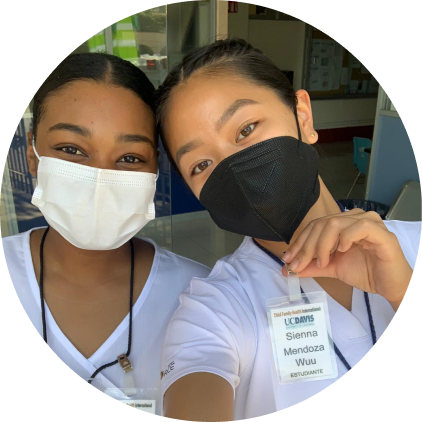

Let The World Change You

